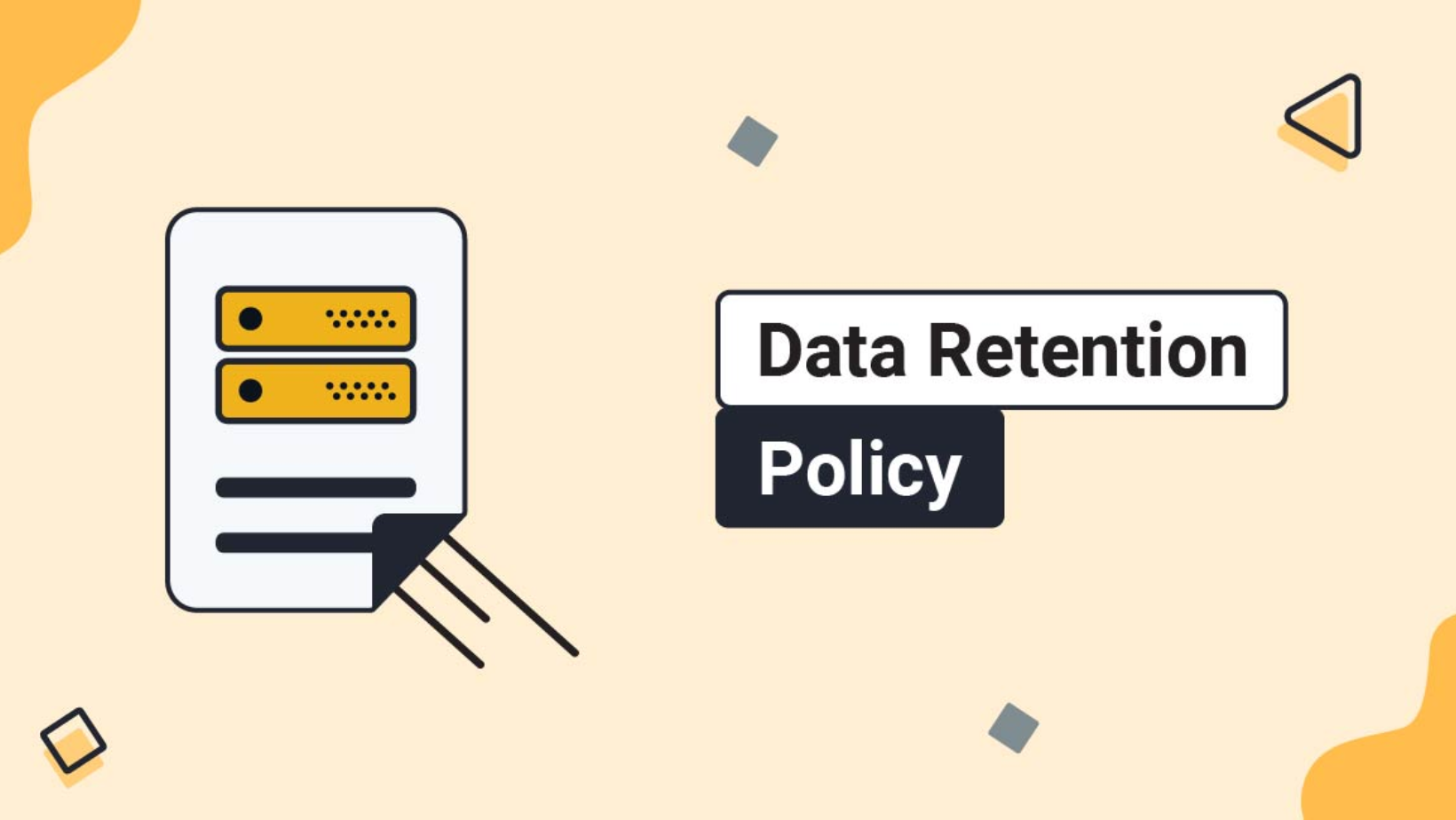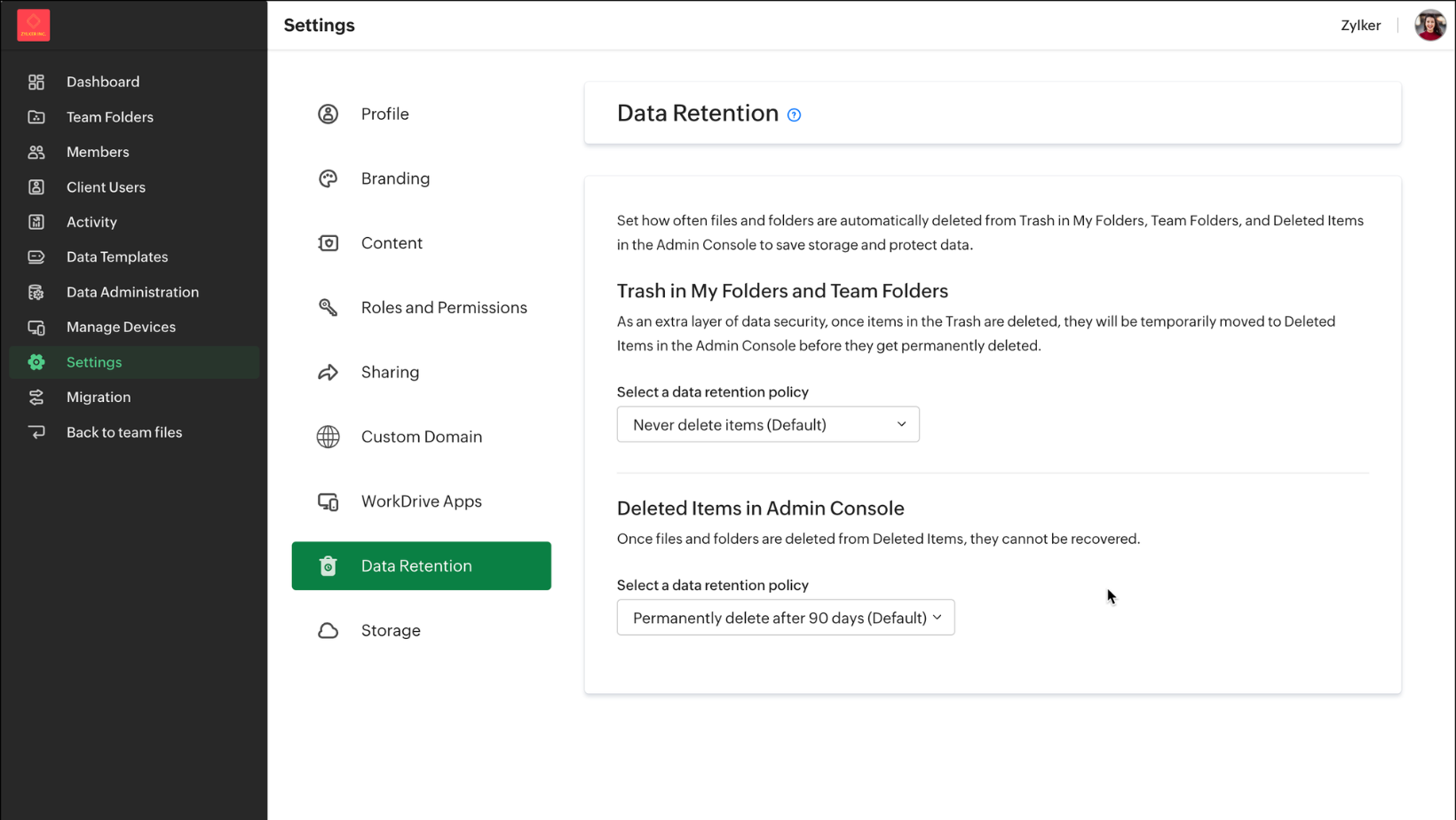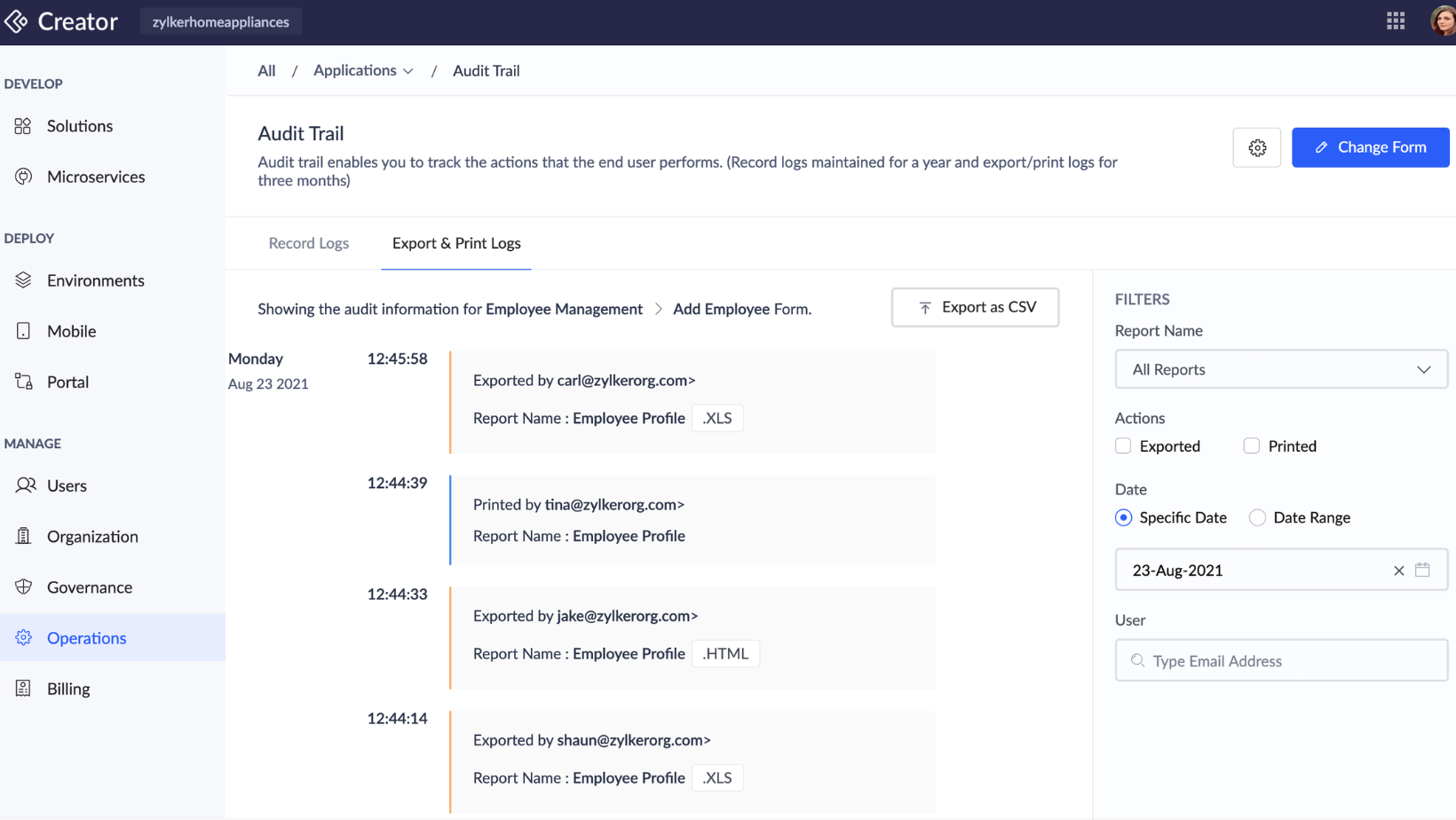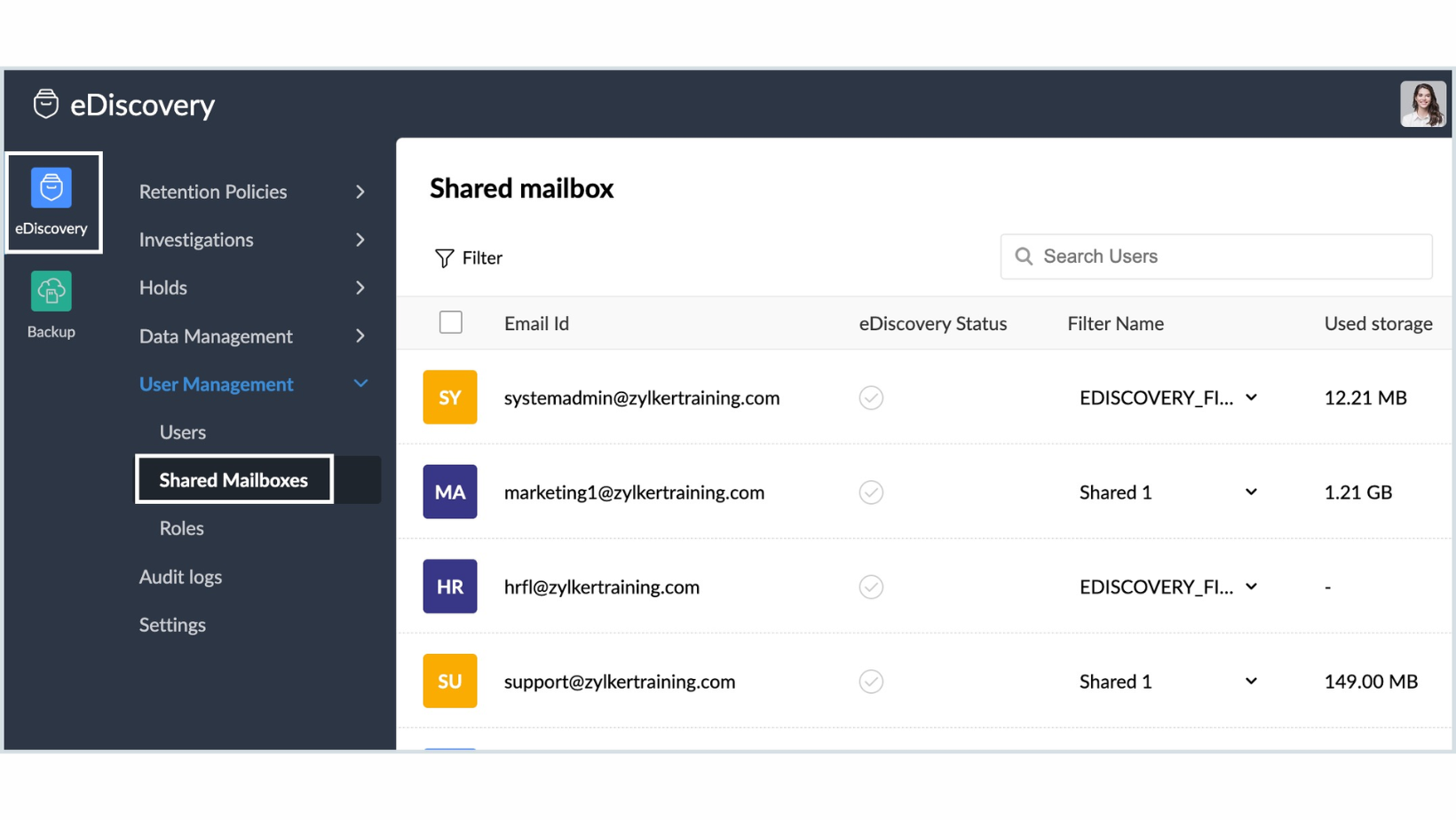Introduction: Navigating the Data Retention Maze
In the intricate landscape of modern business, data retention policies stand as silent guardians, often overlooked but wielding immense power over the fate of your business information. Navigating this maze correctly is not just a choice; it’s a strategic imperative. Mishandle data retention, and the consequences can range from chaos and compliance issues to the peril of lost data. In this comprehensive exploration, we delve into the heart of why data retention matters and how it serves as a linchpin for responsible, efficient, and secure data management.
Unraveling the Complexity: Why Data Retention Matters
- Compliance with Regulations:
In an era where data privacy regulations like GDPR (General Data Protection Regulation), CCPA (California Consumer Privacy Act), and a myriad of others shape the digital landscape, compliance is non-negotiable. Data retention policies become the backbone of responsible data handling and deletion, ensuring that your business aligns with legal mandates and safeguards the privacy rights of individuals.
- Storage Optimization:
The digital realm is a vast repository of information, but not all data is created equal. Efficient data retention policies act as custodians of your storage space, purging outdated, redundant, or irrelevant data. By doing so, businesses not only reduce costs associated with storage but also enhance system performance, ensuring that every piece of retained data serves a purpose.
- Security and Risk Mitigation:
In the age of cyber threats and data breaches, securing sensitive information is paramount. Data retention policies become a shield, protecting your organization from unauthorized access or leaks. By defining clear guidelines on how long specific types of data are retained and when they should be securely purged, businesses can mitigate risks and fortify their defenses against potential breaches.
- Enhanced Governance and Transparency:
A well-crafted data retention strategy goes beyond compliance and optimization; it establishes a foundation of governance and transparency. Organizations can maintain a clear audit trail, showcasing responsible data management practices. This not only instills confidence among stakeholders but also provides a tangible demonstration of commitment to ethical, accountable data handling.
- The Labyrinth of Consequences: Navigating the Risks
While data retention policies offer a compass for responsible data management, failing to navigate the labyrinth of consequences can lead to dire outcomes. From legal ramifications due to non-compliance to the operational burden of unnecessary data storage, the risks are multifaceted. The delicate balance of retaining valuable information while shedding the obsolete requires a strategic and informed approach.
- The Strategic Imperative: Crafting an Effective Data Retention Policy
Crafting an effective data retention policy involves aligning with regulatory requirements, optimizing storage resources, enhancing security, and fostering transparency. It requires a nuanced understanding of the data lifecycle, from creation to deletion. This strategic imperative demands collaboration across legal, IT, and compliance teams to ensure a holistic and resilient approach.
As we embark on this journey through the data retention maze, it becomes clear that the stakes are high, and the path is intricate. However, armed with knowledge, organizations can turn this complexity into an opportunity for strategic advantage. In the subsequent sections of this exploration, we will unravel the layers of data retention, examining the intricacies of compliance, the art of optimization, the science of security, and the value of governance. Together, we will navigate the data retention maze, understanding its challenges and unlocking the strategic benefits that lie within.
Understanding Zoho Workplace Data Retention Features 
In the intricate dance of data management, Zoho Workplace emerges as a maestro, orchestrating a harmonious symphony of features designed to navigate the complexities of data retention. As organizations grapple with the need to balance regulatory compliance, storage efficiency, and security, Zoho Workplace steps forward with a robust set of data retention features, providing not just control but a strategic advantage in the digital landscape.
Customizable Policies: Sculpting Retention Strategies to Fit Your Needs
At the heart of Zoho Workplace’s data retention prowess lies the ability to craft policies as unique as your business. Customizability is key, allowing organizations to define how long different types of data endure within the ecosystem. From emails and documents to user logs and activity records, each category receives tailored attention, aligning with regulatory requirements and internal strategies for responsible data handling.
Granular Control: Precision in Preservation
Zoho Workplace recognizes that not all data is equal, and not all retention needs are uniform. Granular control is woven into the fabric of its retention features, enabling organizations to set specific retention periods for individual apps and data categories within each app. This level of precision ensures that data is preserved according to its significance and relevance, contributing to a lean and efficient data ecosystem.
Automatic Data Purging: Streamlining Management Effortlessly
Automation emerges as a key protagonist in Zoho Workplace’s data retention narrative. Organizations can schedule the automated deletion of data that reaches its defined retention period. This not only ensures a proactive approach to data management but also contributes to the liberation of storage resources. By automating the purging process, Zoho Workplace streamlines management efforts, allowing teams to focus on strategic initiatives rather than routine housekeeping.
Exception Management: Preserving Critical Information with Nuance
In the nuanced landscape of data retention, exceptions are often the rule. Zoho Workplace acknowledges this reality and provides organizations with the capability to define exceptions to retention policies. Critical information that warrants preservation beyond typical timelines can be safeguarded. This granular approach ensures that even within a comprehensive retention strategy, organizations can cater to the unique needs of specific data sets or user groups.
Audit Trails and Reporting: Illuminating the Data Lifecycle
Visibility is paramount in effective data governance, and Zoho Workplace illuminates the data lifecycle through comprehensive audit trails and reporting. Organizations can track data access, deletions, and compliance with retention policies through detailed reports and audit logs. This not only serves as a vigilant guardian against unauthorized access but also provides valuable insights into the patterns and behaviors of data within the ecosystem.
Integration with Other Zoho Services: Extending Governance Across Platforms
Data doesn’t exist in isolation, and Zoho Workplace acknowledges the interconnected nature of modern business platforms. Its data retention features seamlessly integrate with other Zoho services, including CRM and Marketing. This integration ensures that data retention policies extend across the organizational landscape, fostering comprehensive governance and adherence to retention strategies beyond the confines of Workplace.
In the grand tapestry of data retention, Zoho Workplace emerges as a master weaver, threading together customizability, precision, automation, nuance, visibility, and integration. By understanding the unique needs of organizations in managing their data lifecycle, Zoho Workplace empowers them not just with control but with a strategic advantage in navigating the intricate dance of data management. As we continue our exploration, we will delve deeper into the nuances of data retention, examining the challenges, benefits, and best practices that define this critical aspect of digital governance. Together, we will unravel the layers of data retention, understanding its intricacies and harnessing its potential for organizational success.
Crafting Effective Data Retention Policies
In the intricate dance of data management, crafting effective data retention policies emerges as a choreography that requires precision, foresight, and adaptability. As businesses navigate the labyrinth of regulatory requirements, operational needs, and evolving technologies, the art of striking the right balance in data retention becomes paramount. In this exploration, we’ll delve into the key considerations and best practices for crafting data retention policies that not only comply with regulations but also align with the strategic goals of your organization.
Identify Your Needs: Analyzing the Tapestry of Business Requirements
The first step in crafting effective data retention policies is to unravel the intricacies of your business requirements. This involves a meticulous analysis of regulatory obligations, risk factors, and the operational needs that define your organization. By understanding the nature of different data types and their significance in the organizational tapestry, you can determine appropriate retention periods that align with both compliance mandates and strategic objectives.
Strike the Balance: Retaining Wisely, Avoiding Unnecessary Accumulation
The art of data retention lies in striking the delicate balance between retaining data long enough to meet legal, historical, or operational needs and avoiding unnecessary storage that incurs costs and security risks. This requires a nuanced understanding of the value that each piece of data contributes to the organizational narrative. By discerning between indispensable information and digital clutter, businesses can optimize their storage resources and enhance overall data security.
Consider User Impact: Navigating the Intersection of Policies and User Experience
Effective data retention policies should not be a source of friction within the organization. It’s crucial to consider the impact on users, ensuring that policies do not impede access to essential information or create unnecessary workflow disruptions. Striking a balance between policy enforcement and user experience is a key aspect of crafting policies that are not just compliant but also conducive to a seamless and efficient work environment.
Communicate Clearly: Illuminating the Path for Users
Clarity is a beacon in the realm of data retention policies. Organizations should communicate these policies clearly to users, ensuring they understand how policies affect their access to information. Transparent communication fosters a culture of awareness and responsibility, empowering users to align their actions with the overarching data retention strategy. By illuminating the path, organizations can instill a sense of accountability among users, contributing to the overall success of data management initiatives.
Regular Review and Updates: Adapting to the Rhythms of Change
The data landscape is dynamic, subject to the constant rhythms of change in business needs, regulations, and technology. Crafting effective data retention policies involves an ongoing commitment to regular review and updates. Periodic reassessment ensures that policies remain aligned with the evolving needs of the organization, regulatory landscape, and technological advancements. Flexibility and adaptability are key virtues in this journey, allowing organizations to respond proactively to emerging challenges and opportunities.
Pro Tip: Start Small and Iterate!
Embarking on the journey of crafting data retention policies can be daunting, but wisdom lies in starting small and iterating. Piloting policies with specific data sets or departments allows organizations to test the effectiveness of their strategies in a controlled environment. This iterative approach enables continuous improvement, refinement, and optimization of data retention policies before implementing them across the entire organizational spectrum.
In the symphony of data management, crafting effective data retention policies is a melody that resonates with strategic foresight, user-centricity, clarity, and adaptability. By identifying needs, striking the right balance, considering user impact, communicating clearly, and embracing regular review, organizations can choreograph policies that not only comply with regulations but also elevate data management to a strategic asset. As we continue our exploration, we will delve deeper into the nuances of data retention, exploring specific challenges, benefits, and real-world applications that define this critical aspect of digital governance. Together, we will unravel the layers of data retention, understanding its intricacies and harnessing its potential for organizational success.
Advanced Zoho Data Retention Techniques
In the ever-evolving landscape of data management, where the stakes of security, compliance, and strategic decision-making are high, mastering advanced data retention techniques becomes a crucial endeavor. Zoho Workplace, with its robust set of features, goes beyond basic retention policies, offering advanced capabilities that empower organizations to navigate the intricacies of data governance with finesse. Let’s explore these advanced Zoho data retention techniques that elevate data management to a realm of precision, adaptability, and heightened security.
Conditional Retention: Tailoring Retention Periods to Specific Criteria
One-size-fits-all doesn’t apply to data retention, and Zoho recognizes this reality through Conditional Retention. This advanced technique allows organizations to set dynamic retention periods based on specific criteria. Whether it’s different retention periods for distinct file types, tying retention to project completion milestones, or adjusting based on user activity or inactivity, Conditional Retention provides granular control. This nuanced approach ensures that data is retained for precisely the duration it holds relevance, aligning with the organization’s unique operational dynamics.
Legal Holds and eDiscovery: Safeguarding Data for Legal Preparedness
In the legal landscape, organizations often find themselves navigating potential disputes, investigations, or litigation. Zoho’s advanced data retention techniques include Legal Holds and eDiscovery capabilities. Legal Holds enable organizations to implement a freeze on data deletion for specific records, ensuring that information relevant to potential legal proceedings remains intact. eDiscovery, on the other hand, streamlines the process of searching, preserving, and producing electronic information for legal purposes. These features collectively empower organizations to navigate legal challenges with confidence and compliance.
Data Archival and Backup: Balancing Accessibility and Storage Efficiency
While data retention is about retaining the right data for the right duration, Zoho goes a step further with advanced Data Archival and Backup features. Archiving historical data allows organizations to preserve information for long-term access while removing it from active storage. This dual approach ensures that historical records remain accessible when needed, without cluttering active storage spaces. The benefits extend beyond accessibility; it optimizes storage costs and enhances security by segregating active and archival data.
Encryption and Access Controls: Fortifying Data Security
In the age of heightened cybersecurity concerns, Zoho Workplace incorporates advanced encryption and access controls to fortify data security. Encryption at rest and in transit ensures that sensitive data remains protected, whether stored or in transit between users and servers. Granular access controls add an additional layer of security by allowing organizations to define who can access specific data and what actions they can perform. This combination of encryption and access controls establishes a robust defense against unauthorized access and data breaches.
Third-Party Integrations: Amplifying Data Security and Compliance
Zoho’s commitment to comprehensive data security is further underscored by its support for third-party integrations, particularly with Data Loss Prevention (DLP) tools. Integrating with DLP solutions enhances data security and compliance by adding an extra layer of scrutiny to prevent the unauthorized sharing or exposure of sensitive information. This collaborative approach enables organizations to leverage specialized tools seamlessly within the Zoho Workplace environment, reinforcing their overall data protection strategy.
In the symphony of advanced Zoho data retention techniques, organizations find a harmonious blend of precision, adaptability, and security. Whether tailoring retention based on specific criteria, preparing for legal challenges, optimizing storage efficiency through archival, fortifying security with encryption and access controls, or integrating with third-party solutions, Zoho Workplace empowers organizations to navigate the complex landscape of data management with confidence and sophistication. As we continue our exploration, we will delve deeper into real-world applications, benefits, and best practices, guiding organizations on their journey to mastering advanced data retention in the digital era.
Real-World Success Stories: Businesses Master Zoho Data Retention
In the dynamic landscape of data management, businesses across diverse industries have harnessed the power of Zoho’s advanced data retention features to navigate challenges, achieve compliance, and streamline their operations. Let’s delve into real-world success stories that illuminate how companies have mastered Zoho’s data retention capabilities to drive tangible benefits and fortify their data management strategies.
Case Studies: Navigating Compliance and Reducing Storage Costs
- Healthcare Innovations Inc.: Ensuring HIPAA Compliance
Healthcare Innovations Inc., a leading player in the healthcare sector, faced the challenge of ensuring compliance with stringent regulations such as HIPAA (Health Insurance Portability and Accountability Act). By leveraging Zoho’s customizable data retention policies, the company tailored retention periods for sensitive patient records, ensuring compliance with HIPAA’s data protection requirements. The result? A seamless workflow that not only met regulatory standards but also reduced the risk of data breaches and legal consequences.
- Tech Innovators Ltd.: Optimizing Storage Efficiency
Tech Innovators Ltd., a technology-driven firm dealing with vast datasets, sought to optimize storage efficiency without compromising data accessibility. Zoho’s advanced Data Archival and Backup features came to the rescue. By strategically archiving historical data while maintaining easy access, Tech Innovators achieved a significant reduction in storage costs. This not only freed up valuable resources but also streamlined their data management strategy, enhancing overall operational efficiency.
- Quantifiable Results: Mitigating Legal Risks and Improving Governance
Legal Solutions Co.: Defending Against Legal Challenges
Legal Solutions Co. encountered the need to defend against potential legal challenges while ensuring data integrity. Zoho’s Legal Holds and eDiscovery functionalities proved instrumental. By implementing legal holds on specific data during critical periods, the company safeguarded crucial information for potential legal proceedings. Additionally, the eDiscovery capabilities facilitated swift and precise retrieval of relevant data, reducing the time and effort involved in responding to legal requests. The result? A proactive approach to legal challenges and improved governance.
- Financial Dynamics Corp.: Streamlining Operations with Automation
Financial Dynamics Corp., a financial services provider, sought to streamline its data management operations by automating routine tasks. Zoho’s Automatic Data Purging capabilities allowed the company to schedule the deletion of outdated records, reducing manual intervention and ensuring consistent adherence to retention policies. This not only enhanced operational efficiency but also minimized the risk of retaining unnecessary data, aligning with the company’s commitment to responsible data management.
- Customer Testimonials: Embracing Ease of Use and Value
Tech Innovate Solutions: Embracing Simplicity and Security
“At Tech Innovate Solutions, we were impressed not just by the robustness of Zoho’s data retention features but also by their user-friendly interface. The ability to customize retention policies and seamlessly integrate with third-party tools added tremendous value to our data management strategy. Zoho has truly simplified the complex world of data retention for us.”
- Global Compliance Experts: A Testament to Security and Compliance
“As a company specializing in regulatory compliance, data security is paramount for us. Zoho’s encryption and access controls have become indispensable in fortifying our data against unauthorized access. The platform’s commitment to compliance with industry standards ensures that we not only meet but exceed the expectations of our clients and regulators.”
In conclusion, these real-world success stories stand as testament to the diverse ways in which businesses have harnessed Zoho’s data retention features. Whether ensuring compliance, optimizing storage efficiency, mitigating legal risks, or streamlining operations, Zoho has emerged as a trusted ally in the journey toward mastering data retention in the digital era. As we continue to explore best practices and applications, these stories inspire and guide organizations toward maximizing the benefits of advanced data retention techniques.
Implementing Effective Data Retention Policies in Zoho Workplace: A Step-by-Step Guide
Navigating the complex terrain of data retention requires a strategic and well-orchestrated approach. Here’s a step-by-step guide to implementing effective data retention policies in Zoho Workplace, ensuring seamless compliance, optimized storage, and enhanced data security.
- Assessing Your Data Landscape
Begin by conducting a comprehensive assessment of your data landscape. Identify the various data types within your organization, understand where they are stored, and evaluate the existing data retention practices. This foundational step sets the stage for crafting tailored retention policies that align with your specific business needs.
- Defining Retention Periods
Once you have a clear understanding of your data landscape, determine appropriate retention periods for different data categories. Consider your business requirements, regulatory obligations, and risk factors. Striking the right balance is key—retain data long enough to meet legal, historical, or operational needs, but avoid unnecessary storage that incurs costs and security risks.
- Configuring Retention Policies
With Zoho Workplace’s robust features, configure custom retention policies within each Zoho app to align with your defined periods. Leverage the granular control offered by Zoho to set specific retention rules for individual apps and data categories. Additionally, manage exceptions for specific data or user groups to ensure critical information is preserved according to your unique requirements.
- Testing and Monitoring
Before fully implementing your policies, conduct thorough testing to ensure they align with your objectives. Monitor their effectiveness through Zoho’s audit logs and detailed reports. Regularly review these logs to track data access, deletions, and compliance with the established policies. This iterative process allows you to refine and optimize your policies for maximum efficiency.
- Communicate and Train
Effective communication is crucial for successful implementation. Inform your users about the newly established data retention policies and educate them on the associated procedures. Training sessions can help users understand the importance of compliance and their role in adhering to data retention guidelines. Clear communication fosters a culture of responsible data management across the organization.
By following this step-by-step guide, you can seamlessly implement effective data retention policies in Zoho Workplace. This not only ensures compliance with regulations but also optimizes storage, mitigates risks, and strengthens data security. Remember, the key to successful data retention lies in ongoing monitoring, communication, and a commitment to adapt policies as your business evolves.
Conclusion: Data Retention – A Pillar of Responsible Business
In the intricate dance of data management, effective retention policies stand as the guardians of responsible business practices. Navigating the complexities of compliance, security, and storage optimization, Zoho Workplace emerges as a steadfast partner.
- Embrace Responsible Data Governance:
As we traverse the digital age, responsible data retention becomes a cornerstone of ethical and compliant business operations. Zoho Workplace offers a robust framework to navigate this intricate landscape, ensuring businesses not only meet regulatory requirements but also optimize storage and enhance data security.
- Empower Your Business:
Zoho Workplace empowers businesses to take control of their data retention strategies. By seamlessly implementing and adapting policies, organizations can build a resilient foundation for responsible data governance.
- Unlock the Benefits:
Step into a realm where data works for you. Explore the benefits of responsible data governance with Zoho Workplace—optimize storage, mitigate risks, and strengthen data security. The journey begins with a click—take control, stay compliant, and build a future-proof data landscape with Zoho.







